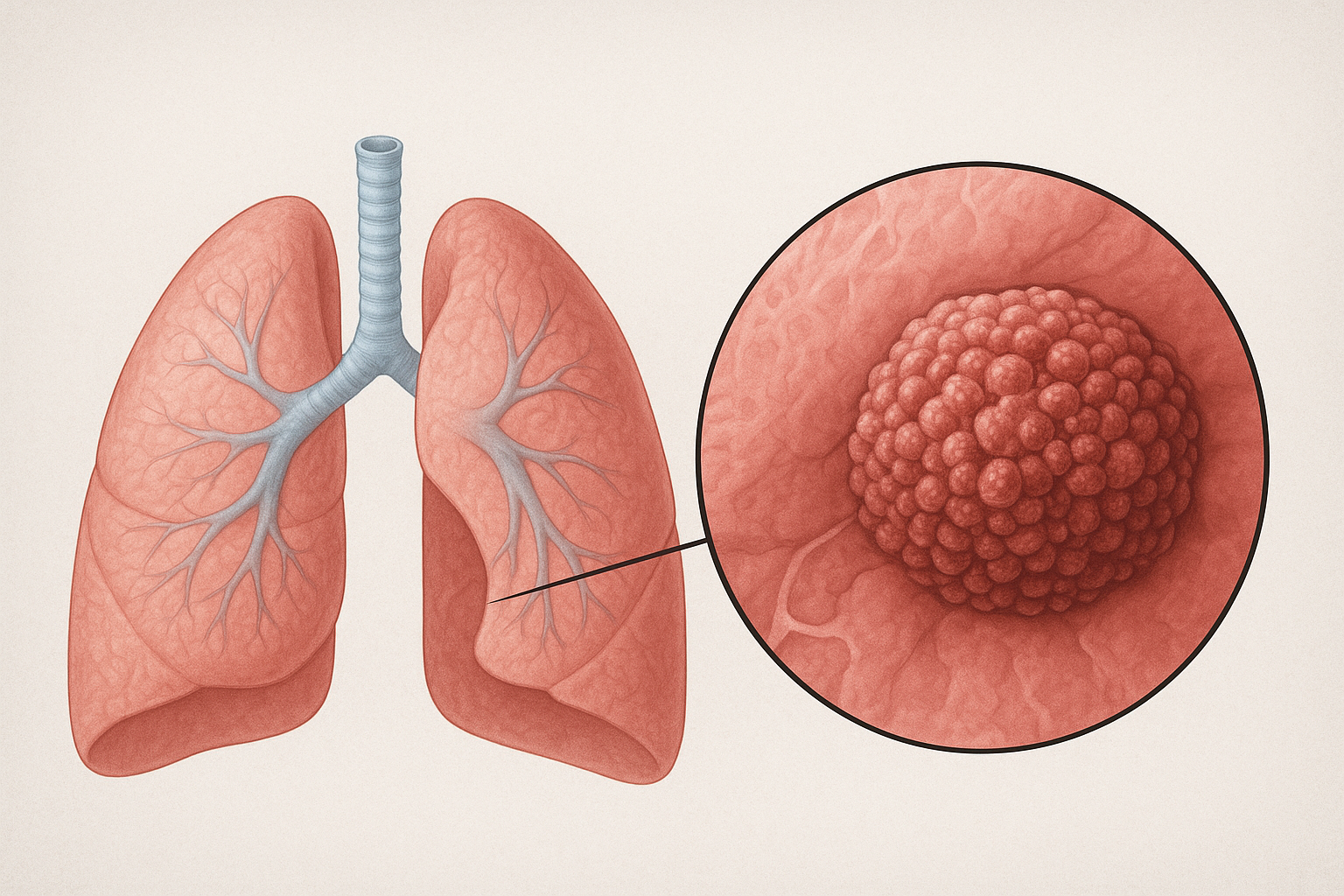
Extensive-stage small cell lung cancer (ES-SCLC) is an aggressive malignancy with a poor prognosis, where first-line induction therapy typically involves platinum-etoposide chemotherapy combined with immunotherapy like atezolizumab, followed by maintenance to delay progression. Despite advances, relapse rates remain high, underscoring the need for effective maintenance strategies. On October 2, 2025, the U.S. Food and Drug Administration (FDA) approved lurbinectedin (Zepzelca), an alkylating agent that binds DNA guanine residues to disrupt the cell cycle and induce cancer cell death, in combination with atezolizumab (Tecentriq), a PD-L1 inhibitor, or its subcutaneous form (Tecentriq Hybreza), as first-line maintenance therapy for adult patients with ES-SCLC whose disease has not progressed after four cycles of induction therapy with atezolizumab, carboplatin, and etoposide. This approval, the first for a combination maintenance regimen in this setting, was based on the phase 3 IMforte trial (NCT05091567), a randomized, open-label, multicenter study involving 483 patients across 13 countries.
Patients, who had stable disease or response post-induction, were randomized 1:1 to receive intravenous lurbinectedin (3.2 mg/m²) plus atezolizumab (1200 mg) every 3 weeks or atezolizumab monotherapy until progression or unacceptable toxicity. Granulocyte colony-stimulating factor prophylaxis was recommended to mitigate neutropenia risk. The primary efficacy endpoints were progression-free survival (PFS) and overall survival (OS), assessed by independent review facility using RECIST v1.1 from randomization.
The combination significantly prolonged median PFS to 5.4 months (95% CI: 4.2-5.8) versus 2.1 months (95% CI: 1.6-2.7) with atezolizumab alone (stratified HR 0.54, 95% CI: 0.43-0.67; P < .0001), reducing the risk of progression or death by 46%. Median OS improved to 13.2 months (95% CI: 11.9-16.4) from 10.6 months (95% CI: 9.5-12.2; stratified HR 0.73, 95% CI: 0.57-0.95; P = .0174), a 27% reduction in mortality risk. At 6 months, 41% of combination-treated patients remained progression-free versus 19% on monotherapy.
Safety data aligned with known profiles: higher rates of grade 3/4 adverse events (including neutropenia requiring monitoring) and treatment discontinuations (6.2% vs. 3.3%) in the combination arm, but no new signals emerged. The National Comprehensive Cancer Network updated guidelines to include this regimen as preferred post-induction. Limitations include the open-label design and focus on patients responding to induction, potentially limiting generalizability. This approval expands options for ES-SCLC, a disease with limited therapies, offering proactive survival benefits. Future studies may explore biomarkers, subcutaneous administration impacts, and long-term outcomes in diverse populations. Clinicians should weigh bleeding risks and monitor hematologic parameters closely.

